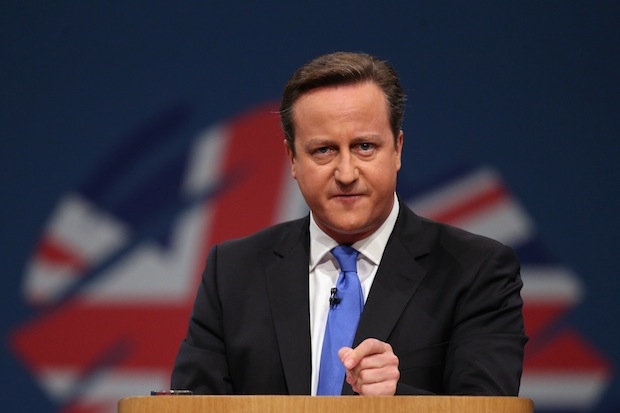David Cameron’s restrictions on welfare for new migrants have pleased Tory backbenchers – but not enough for them to drop their Commons campaign for the transitional immigration controls to be extended. There are now 46 Conservative MPs signed up to support it, and I’ve just spoken to Nigel Mills, who tabled the amendment, who said:
‘The Prime Minister’s announcements are welcome steps in the right direction. However the issues with our current levels of unemployment and pressures on other public services would not be tackled so I still believe we need to keep the restrictions in place, and so I will still proceed with my amendment.’
Labour is briefing that it was the growing support Mills’s amendment that pushed Downing Street into announcing all these new restrictions today. Certainly it all seems rather last minute. But a Downing Street source said after PMQs today that ‘there has been a lot of work on this for some months and the ministerial working group has been working on this for months’. The source said it had taken time for these policies to see the light of day because of the complex legal issues surrounding them. And Theresa May told the Commons this afternoon that ‘it is highly likely that we will find ourselves in considerable disagreement with the European Union about the measures that we have taken. But we are prepared to do that’.
But the Prime Minister is also hoping that his announcement that he wants broader reform of the freedom of movement in the European Union will be seen by his Conservative colleagues as a ‘welcome step in the right direction’. This afternoon, he argued in an interview with the BBC that ‘I think that the tide of ideas and opinion is going in my direction’. He told Nick Robinson:
‘I’m confident I will get these changes and I’m confident we’ll get Britain’s place secured in a reformed European Union and I think that the tide of ideas and opinion is going in my direction.
‘I think people can now see that when new countries join, if they have radically different wage rates, radically different economies in terms of scale than ours, you will get these mass movements of people.
‘Frankly it isn’t right for our own country and it isn’t right for those countries. You see sometimes a little bit of a hollowing out of some of these poorer countries when so many of their young people cross the continent to seek work elsewhere, so I want quite a profound renegotiation in terms of the free movement of people so that you can make sure countries can have controls for much longer and frankly I’m also not satisfied with the current situation with benefits.
‘I mean, take child benefit, which is generous in this country, £20 for the first child. There are many people living in our country, working hard, from other European countries but their families are back in Hungary or Poland or elsewhere and they are getting child benefit even though their children are living in another country with a lower cost of living and different challenges. That isn’t right and we need to make changes to that situation as well.’
His aides were today pointing to similar restrictions on migrants' access to public services in Holland and Germany as a sign of support for the Prime Minister in Europe. But there's more than that. Talk to members of the Fresh Start Project, which the Foreign Office has been using on an informal basis for a number of months to prepare the soil in a number of European capitals and parliaments, and they will appear rather more enthusiastic about the prospects for Europe-wide reform.
Of course, much of the Europe-wide reform isn't as fundamental as the sort of reform to the specific relationship between Britain and Europe that many Eurosceptics would like to see. But even though characters like László Andor want to resist any suggestion that the current settlement across the EU needs looking at again, Cameron is confident enough that on this, he can bring something home for his country and so can other European leaders. The problem is that his own party wants so much more than that.







Comments